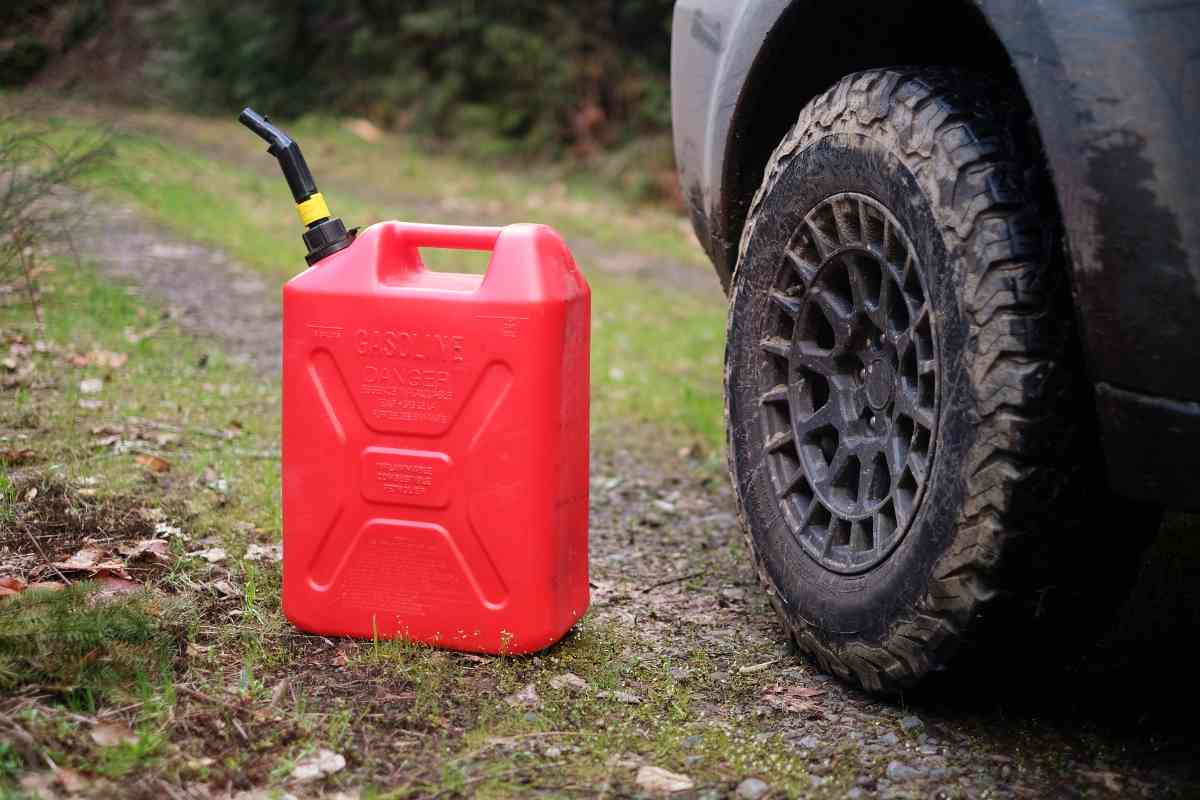How Much Does Gasoline Weigh? A Comprehensive Guide to Gasoline Weight and Density
Gasoline is a common fuel used in many vehicles, but have you ever wondered how much it weighs? The weight of gasoline is an important factor to consider for fuel efficiency and transportation purposes.

How much does gas weigh?
On average, gasoline weighs about 6.073 pounds per gallon (0.72 kilograms per liter) at room temperature. However, the weight can vary based on the temperature and composition of the gasoline. Gasoline contains a mixture of hydrocarbons and additives that affect its density and weight.
Knowing the weight of gasoline is important for various reasons. For example, it helps determine the amount of fuel a vehicle can carry and how much it will affect the overall weight of the vehicle.
It is also important for shipping and transportation purposes, as the weight of gasoline can affect the cost and logistics of transporting it.
What is gasoline?
Gasoline is a volatile, flammable liquid that is derived from crude oil. It is primarily used as fuel in internal combustion engines, such as those found in cars, trucks, and motorcycles.
Gasoline is a mixture of hydrocarbons, which are molecules made up of hydrogen and carbon atoms. The exact composition of gasoline can vary depending on the source of the crude oil and the refining process used to create it.
Gasoline is typically stored and transported in large tanks or pipelines. It is also sold at gas stations in smaller quantities, where it is dispensed into vehicles through pumps.
Gasoline is often blended with other additives, such as ethanol or detergents, to improve its performance or reduce emissions. Catalytic converters also play a big role in reducing emissions.
Gasoline is a vital component of modern transportation, but it also has environmental and safety concerns. The combustion of gasoline releases carbon dioxide and other pollutants into the atmosphere, contributing to climate change and air pollution.
Gasoline is also highly flammable and must be handled and stored carefully to prevent accidents.

The Weight of Gasoline
Gasoline is a commonly used fuel for various types of vehicles, including cars, trucks, and airplanes. The weight of gasoline is an important consideration for transportation and storage purposes. In this section, we will explore the factors that affect the weight of gasoline.
Factors that Affect the Weight of Gasoline
The weight of gasoline can vary depending on several factors, including:
- The temperature of the gasoline
- The density of the gasoline
- The amount of water or other impurities in the gasoline
The temperature of gasoline can affect its weight because gasoline expands as it gets warmer and contracts as it gets colder. Therefore, gasoline will weigh less at higher temperatures and more at lower temperatures.
The density of gasoline also plays a role in its weight. Gasoline with a higher density will weigh more than gasoline with a lower density.
Finally, the amount of water or other impurities in gasoline can affect its weight. Gasoline that contains more impurities will weigh more than gasoline that is pure.
Gasoline typically weighs less than diesel, too.
It is important to note that the weight of gasoline is typically measured in pounds or kilograms, rather than in gallons or liters. This is because the weight of gasoline can vary depending on the factors mentioned above, while the volume of gasoline remains constant.
How to Calculate the Weight of Gasoline
Calculating the weight of gasoline is an important task for anyone who needs to transport or store it. There are two main methods to calculate the weight of gasoline: using the specific gravity of gasoline or using the volume of gasoline.

Using the Specific Gravity of Gasoline
The specific gravity of gasoline is a measure of the density of gasoline compared to water.
The specific gravity of gasoline is typically between 0.71 and 0.77. To calculate the weight of gasoline using the specific gravity, you need to know the volume of gasoline and the specific gravity of the gasoline.
Here is the formula to calculate the weight of gasoline using the specific gravity:
| Formula | Units |
|---|---|
| Weight of Gasoline = Volume of Gasoline x Specific Gravity of Gasoline x 6.073 | Pounds |
For example, if you have 10 gallons of gasoline with a specific gravity of 0.75, the weight of gasoline would be:
| Example Calculation | Units |
|---|---|
| Weight of Gasoline = 10 x 0.75 x 6.073 | Pounds |
| Weight of Gasoline = 45.5475 | Pounds |
Using the Volume of Gasoline
Another method to calculate the weight of gasoline is to use the volume of gasoline. To use this method, you need to know the volume of gasoline and the weight of one gallon of gasoline.
The weight of one gallon of gasoline is approximately 6.073 pounds. To calculate the weight of gasoline using the volume, you simply need to multiply the volume of gasoline by the weight of one gallon of gasoline.
| Formula | Units |
|---|---|
| Weight of Gasoline = Volume of Gasoline x 6.073 | Pounds |
For example, if you have 10 gallons of gasoline, the weight of gasoline would be:
| Example Calculation | Units |
|---|---|
| Weight of Gasoline = 10 x 6.073 | Pounds |
| Weight of Gasoline = 60.73 | Pounds |
Why Knowing the Weight of Gasoline is Important
Knowing the weight of gasoline is essential for various reasons. Here are some of the reasons:
- Transportation: When transporting gasoline, it is essential to know the weight of gasoline to ensure that the vehicle carrying it is not overloaded. Overloading can lead to accidents, which can be fatal.
- Storage: Gasoline is usually stored in tanks, and knowing the weight of gasoline is crucial to ensure that the tank is not overloaded. Overloading can lead to the tank rupturing and spilling gasoline, which can be dangerous.
- Manufacturing: Gasoline is used in various manufacturing processes, and knowing the weight of gasoline is crucial to ensure that the correct amount is used. Using too much or too little gasoline can lead to defects in the final product.
Knowing the weight of gasoline is also essential for individuals who want to calculate their fuel consumption accurately.
Fuel consumption is usually measured in miles per gallon (MPG) or liters per 100 kilometers (L/100km). To calculate fuel consumption accurately, one needs to know the weight of gasoline consumed.
Moreover, knowing the weight of gasoline is important for environmental reasons. Gasoline is a non-renewable resource, and its consumption contributes to climate change.
By knowing the weight of gasoline, individuals and organizations can estimate their carbon footprint and take measures to reduce it.

Conclusion
Gasoline is a commonly used fuel for vehicles and machinery. It is a complex mixture of hydrocarbons that varies in composition and properties depending on the source and refining process. Gasoline has a lower density than water, which means it will float on top of water.
Based on the information presented in this article, it can be concluded that the weight of gasoline varies depending on its temperature, composition, and density. The weight of gasoline at room temperature (around 68°F or 20°C) is approximately 6.073 pounds per gallon or 0.729 kilograms per liter. However, this weight can change with temperature and can range from 5.8 to 6.5 pounds per gallon or 0.696 to 0.780 kilograms per liter.
It is important to note that the weight of gasoline is not the same as its volume. Gasoline is sold by volume, usually in gallons or liters, but its weight is what determines its energy content and how much fuel is needed to produce a certain amount of power.
Understanding the weight of gasoline is important for a variety of reasons, including fuel efficiency, transportation, and storage. By knowing the weight of gasoline, individuals can better estimate how much fuel they need for a trip, how much fuel a vehicle can carry, and how much space is needed to store gasoline safely.
